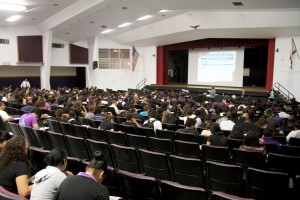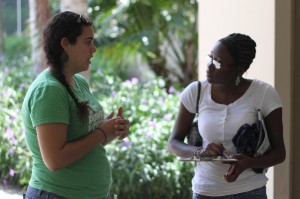We’d like to say the holdover in Wisconsin
election buzz has died, but the contentious recall
has tremendous staying power in certain fringes of
the blogosphere.
In other news, Florida continues to punch its way
upward in the national conversation of voting rights,
rejecting the U.S. Department of Justice call to halt
a controversial voter purge and setting the stage for
a new front in the growing number of federal
challenges to state voting regulations.
We dug a bit deeper today, finding columnists on
both sides and a few lists of legal changes to voting
rights across the many states.
What We’ve Been Reading
“No easy answer for issues of voting
integrity,” (Editorial, 06/06, Iowa City Press
Citizen)
“Photo ID, the Left, and Voter
Fraud,” (Edward White, 06/07, Townhall
Magazine)
“Frequently Asked Questions About
Protecting Citizen Voter Rights in Florida,”
(Gov. Rick Scott’s Office, 06/06,
FLGov.com)
“Restrictive voting laws tied up in
court,” (Krissah Thompson, 06/06, Washington
Post)
“Election Law Changes — June 2012
Update,” (The Atlas Project, 06/07,
AtlasProject.net)
Twitter Trends
No matter your stance on contested voting rights
issues — photo ID, voter fraud, voter suppression,
et. al. — there’s definitely a few ‘hot links’ that
bounce around the Twittersphere. Today, those links
include a claim of ‘liberal hypocrisy’ for the
federal government contesting voter ID laws while
requiring photo ID at First Lady Michelle Obama’s
book signings.
And Attorney General Eric Holder’s appearance on
Capitol Hill spurred the usual flurry of anti- and
pro-Holder tweets around #VoterID, #VoterFraud and
other Department of Justice-related anger.
These and other links on allegations of voter
suppression in Tuesday’s recall election in Wisconsin
dominate searches for the terms “Voting Rights,” “Voter ID,” “Voter Fraud” and “Voter Suppression,” according
to Twitter search engine Topsy.com. We’ll be the first to
let you know about any change in those trends.
And remember to follow us @WhoCanVote for the latest links and
updates in voting rights news.





